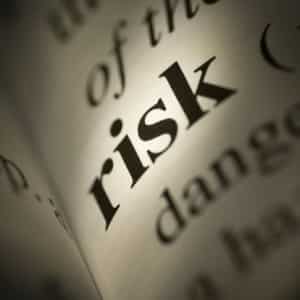 Liability is a big issue for any business. According to the Center for Disease Control and Prevention, an overwhelming amount of individuals (over 1 million) suffer from injuries incurred from slip-and-fall accidents. Several of these people file liability lawsuits against property owners claiming compensation for hospital bills, other expenses pertaining to their accident, and their suffering. Liability is not an issue to be taken lightly. Property owners must take caution and try to diminish the amount of blame that could be placed upon them by potential plaintiffs.
Liability is a big issue for any business. According to the Center for Disease Control and Prevention, an overwhelming amount of individuals (over 1 million) suffer from injuries incurred from slip-and-fall accidents. Several of these people file liability lawsuits against property owners claiming compensation for hospital bills, other expenses pertaining to their accident, and their suffering. Liability is not an issue to be taken lightly. Property owners must take caution and try to diminish the amount of blame that could be placed upon them by potential plaintiffs.
Liability for Property Owners
Liability can be defined as the legal responsibility of entities or individuals regarding their acts or their omissions. Because it specifies that both acts and omissions – failure to act, despite knowledge – could be prosecuted, property owners have a duty to act should they be aware of safety issues and dangers within their property.
Determining property owner liability is a tricky process. Many factors have to be considered carefully in order to assess the level of responsibility of the individual. One of these three events have to be true for the property owner to be liable for the accident in their premises (i):
- The property owner or their employee created the dangerous situation, including but not limited to spills, worn or torn spots, and any other hazardous condition.
- The property owner or their employee knew about the potentially dangerous situation and did nothing to avoid the accident.
- The property owner and their employee should have “reasonably” known and removed the condition of the surface before the accident.
Among the three, the last one is the most common claim against property owners. It is also the most difficult to prove. Several questions help determine whether or not the owner is liable in the third sense.
- Has the damage been there long enough for the property owner to know about it, yet they didn’t fix it?
- Does the property owner conduct regular inspections of his facility, and have employees to maintain it? Do they have documentation of these regular inspections?
- Did the property owner provide warnings and signs alerting visitors and staff regarding the problem?
- Was the area properly illuminated?
- Did the plaintiff fall out of their own carelessness?
Property Owners Must Be Proactive in Liability Prevention
Before any accidents and law suits could happen, it is in the best interest of Property owners to invest in proactive tools in order to avoid expensive settlements. Limit property owner liability by encouraging managers and facility supervisors to take charge of building welfare at all times. It is important for owners to inform their staff about the importance of quickly settling potentially risky situations.
Both property managers and owners need to examine the 3 checks (listed above) and actively try to prevent either one of the three from occurring. Routinely promoting safety will minimize hazardous situations as well as inciting staff to act quickly and decisively once they notice conditions that could potentially lead to accidents.
Assessing Your Property: Minimize Hazards to Limit Liability
There are many ways that property owners and their employees can reduce their liability in their facilities. First, every member of the staff must be empowered to clean up spillage they caused immediately. Should the services of the maintenance crew be needed, it is best to stand closely to spill and warn visitors about its existence, and control the crowd to not pass through the wet spot.
In store areas in which slippery conditions are expected to be norm, floor mats with excellent traction and drainage must be laid out across the floor to prevent slipping by employees.
Advise employees to report any potentially dangerous condition in the store. Try to fix the problem quickly, if it were possible. Should the problem require major repairs, close of the area as soon as possible, minimizing general public exposure to unsafe conditions.
As much as possible conduct routine checks of all areas for broken or dangerous things. It is better to be overly cautious than to pay exorbitant settlement fees.
Keep in mind that property owners are responsible for providing and maintaining a secure and clean establishment. Improve store conditions by installing commercial floor mats. Trap moisture and debris, and promote safety in your property. Launder floor mats regularly to eliminate debris that have gathered during its use. Properly maintaining commercial floor mats increase their efficiency and prevents liability issue.
Sources for this report include:
(i) “Slip and Fall Accidents: Proving Fault.” Published on Nolo.com. Accessed November 20th, 2012.






